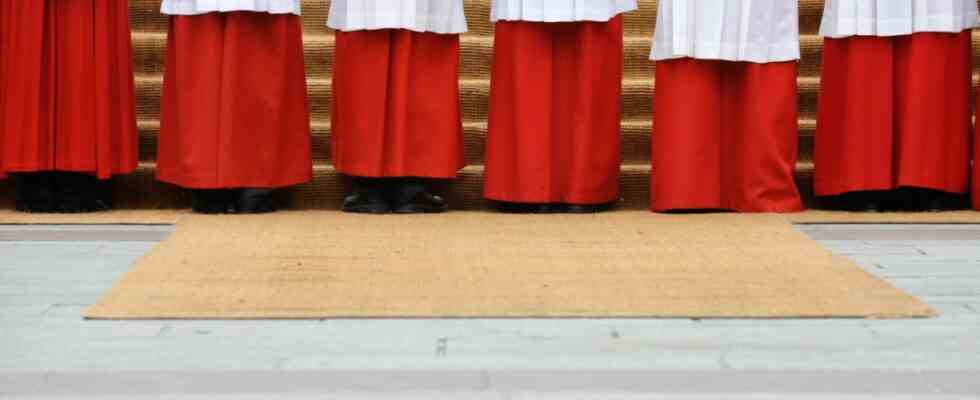The church court of the Diocese of Würzburg has banned a pastor convicted of child abuse from working as a priest indefinitely. “It further reduced the salary of the priest to a pure basic security,” said the diocese on Thursday. An appeal to the Roman Congregation for the Doctrine of the Faith is possible against the decision of October 4th. The 45-year-old can continue to work for the church, and he is currently being treated therapeutically in a facility outside the diocese.
Bishop Franz Jung regrets the serious abuse and the suffering of the victim, it said. The diocese has already offered help to those affected on several occasions. The pastor has been suspended since February 2020. In August 2020, the Bad Kissingen district court had sentenced the man to one year and four months in prison for sexual abuse of the altar boy who was a minor at the time of the crime. The jury suspended the sentence on probation, the probation period was set at three years. In addition, the 45-year-old man should pay 1,200 euros to a non-profit organization. The case is the only one in Bavaria in which there was a trial because of the personnel files handed over to the investigators by the church.
The former chaplain of a Lower Franconian community in the Bad Kissingen district was intimate with the then twelve-year-old around 2010 – among other things, there should have been French kissing. According to Section 176 of the Criminal Code, sexual acts on a person under the age of 14 are punishable by imprisonment from six months to ten years. The defendant had not commented on the allegations made by the public prosecutor. From his point of view, however, it was not child abuse, he only said during his police questioning in spring 2019. He only wants to have had a sexual relationship with the victim after his 18th birthday – the woman had confirmed this before the district court.
After the court decision, the Roman Congregation for the Doctrine of the Faith had authorized Bishop Jung to conduct criminal proceedings through the courts of first instance. “In accordance with the judgment of the Bad Kissingen district court, the church court assumed the credibility of the statements made by the victim, a 24-year-old woman,” the diocese said. According to this, there were repeated sexual acts between the man and the girl from the age of 13 until he came of age. A pedophile inclination of the perpetrator had not been determined, in addition, guilt-reducing circumstances had to be taken into account – underpinned by a psychological assessment of the man, it said.
Ecclesiastical courts operate independently of state jurisdiction. In principle, the so-called official office is an ecclesiastical court for all areas of ecclesiastical law. Such institutions often deal with annulment proceedings. In addition, there are criminal proceedings under canon law. Punishments for the accused can include removal from office and prohibition from performing priestly services. Dismissal from the clergy is the highest penalty that a church court can impose on sexual offenses involving a minor. Questions such as the statute of limitations are specifically regulated in canon law; in individual cases the Congregation for the Doctrine of the Faith can lift the statute of limitations.
As in this case, the proceedings are usually not public, the church public is represented by a church attorney. According to the diocese, the accused and victims are usually heard. Files from the secular law enforcement authorities or a state criminal judgment are included as evidence.

